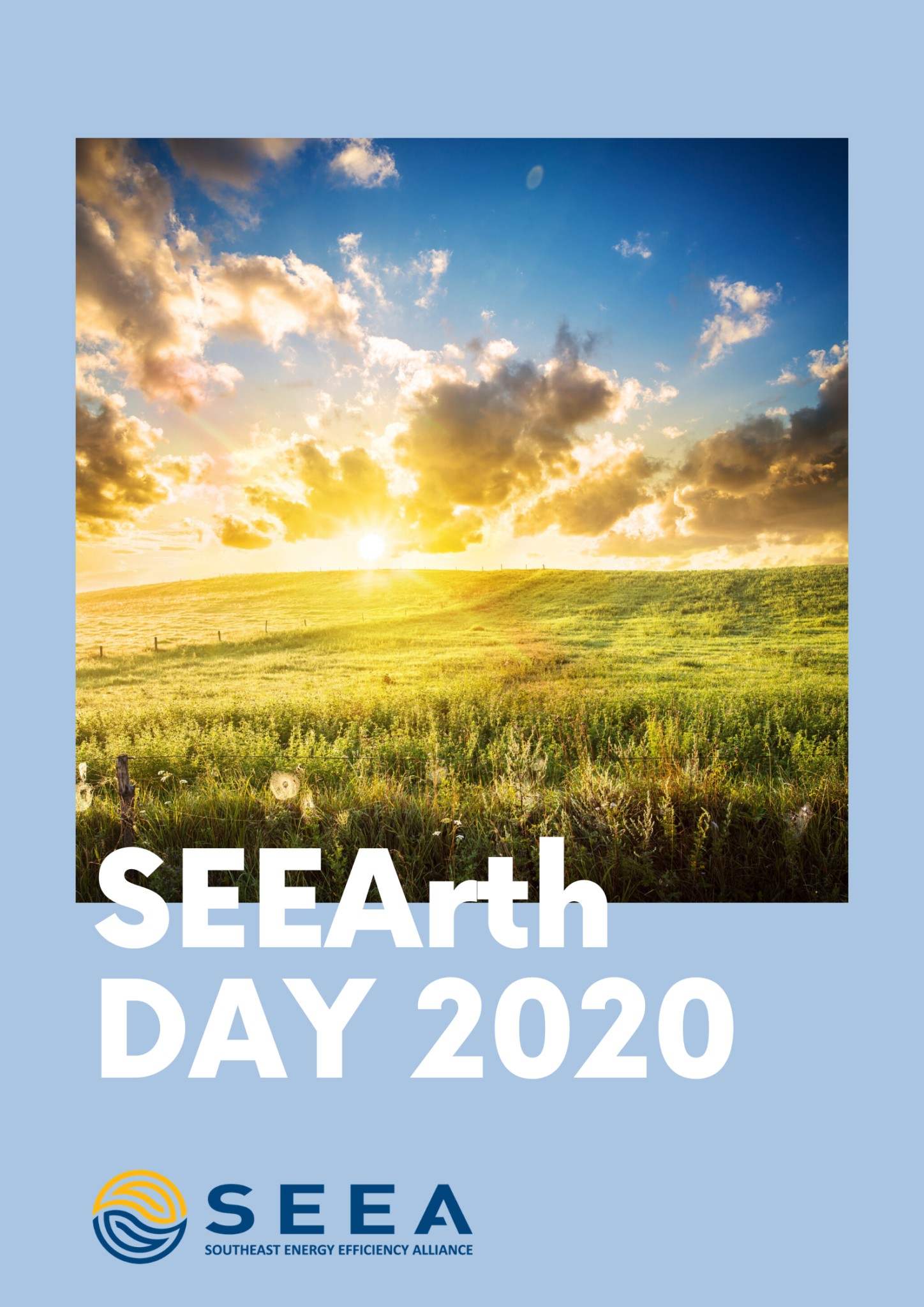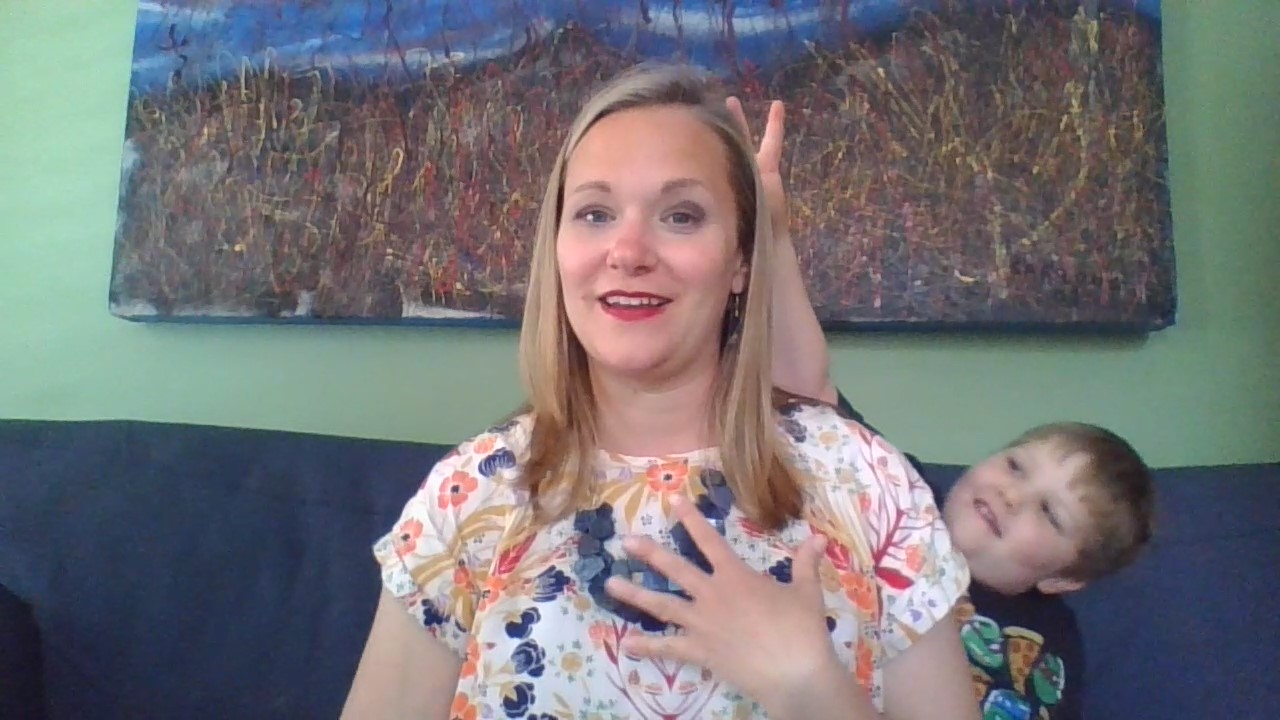Month: April 2020
SEEArth Day 2020
SEEA Staff
Last year, SEEA began a new tradition to honor our planet – SEEArth Day. We use this day to encourage more eco-friendly habits through some friendly competition and to share resources and ideas. Emme and Maggie organized the event, split the staff into teams, and created a sustainability scavenger hunt for the week leading up to Earth Day. In 2019, scavenger hunt activities included taking public transit, starting a compost, watching an Earth-themed film, enjoying the outdoors, and many more. On Earth Day, we celebrated in the office with trash trivia, recyclable sorting challenge, upcycled craft projects, and handed out individual and team prizes. At the end of the day, it was decided – a new SEEA tradition was born.
This year, since the coronavirus is keeping us at home, we were unable to celebrate in person. But a global pandemic didn’t stop us from honoring our planet. The scavenger hunt was expanded two weeks, and included even more sustainable activities, all designed to do at home and with families. On the 50th anniversary of Earth Day, Wednesday, April 22, we virtually awarded prizes, shared our experiences, and set eco-friendly goals for the future.
Some of the things we learned:
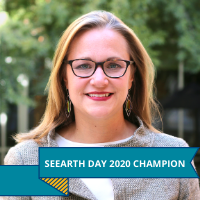 While Mandy really doesn’t like hang-drying clothes, her husband, Sean, loves it. Mandy and her son Paul had fun learning to make salt scrub and home cleaning solutions.
While Mandy really doesn’t like hang-drying clothes, her husband, Sean, loves it. Mandy and her son Paul had fun learning to make salt scrub and home cleaning solutions.
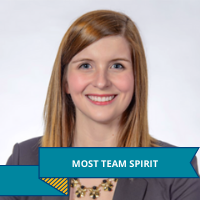 After learning that most wrapping paper isn’t recyclable, Ashley found a recyclable, and affordable wrapping paper alternative.
After learning that most wrapping paper isn’t recyclable, Ashley found a recyclable, and affordable wrapping paper alternative.
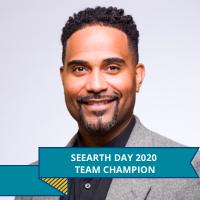 Randall has made his own personal care and cleaning products for years, avoiding harmful chemicals while reducing waste and supply chain emissions.
Randall has made his own personal care and cleaning products for years, avoiding harmful chemicals while reducing waste and supply chain emissions.
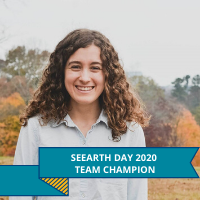 Maddy’s parents have always made their own cleaning supplies, because they are cost-effective as well as sustainable.
Maddy’s parents have always made their own cleaning supplies, because they are cost-effective as well as sustainable.

Pam and Maggie pointed out how hard it is to unplug appliances and turn off lights while we are currently staying at home and dependent on these resources.
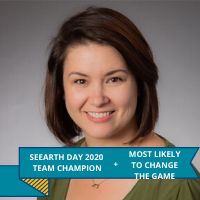 Sarah and her little ones got creative with Earth-inspired artwork and craft projects with upcycled materials.
Sarah and her little ones got creative with Earth-inspired artwork and craft projects with upcycled materials.
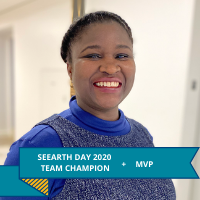 Claudette rediscovered her love for gardening and that finding native plants can be challenging. Atlanta nonprofit, Trees Atlanta, hosts an annual native plant sale.
Claudette rediscovered her love for gardening and that finding native plants can be challenging. Atlanta nonprofit, Trees Atlanta, hosts an annual native plant sale.
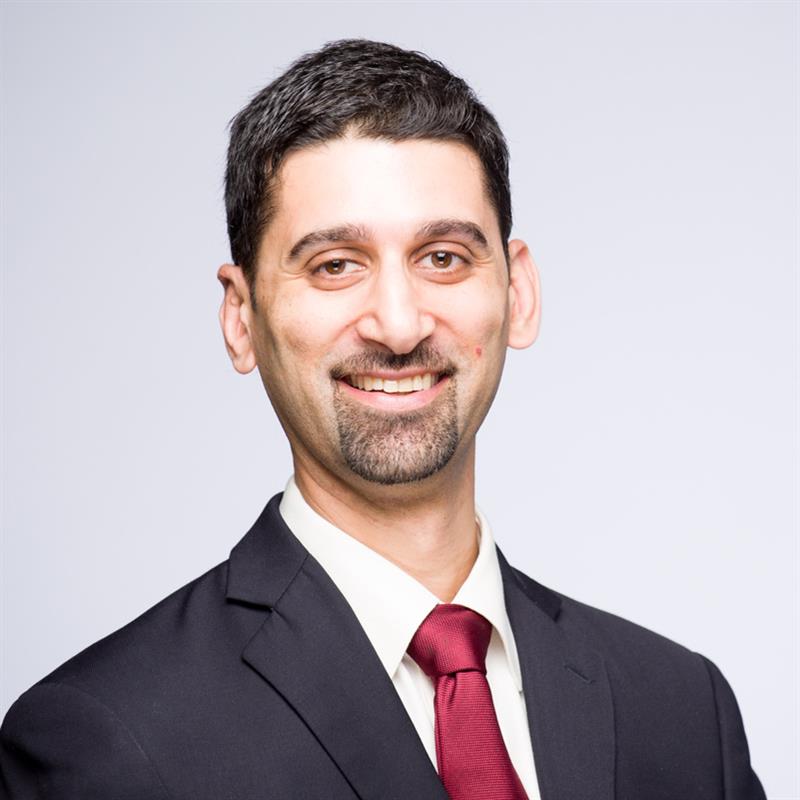
Cyrus noted that in order to leave a better world for future generations, we must make personal changes and as well as work towards global, systemic solutions.
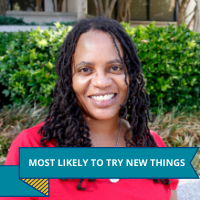 Linda shared that she has learned a lot through these activities SEEArth Day and is inspired to start a compost for her garden.
Linda shared that she has learned a lot through these activities SEEArth Day and is inspired to start a compost for her garden.
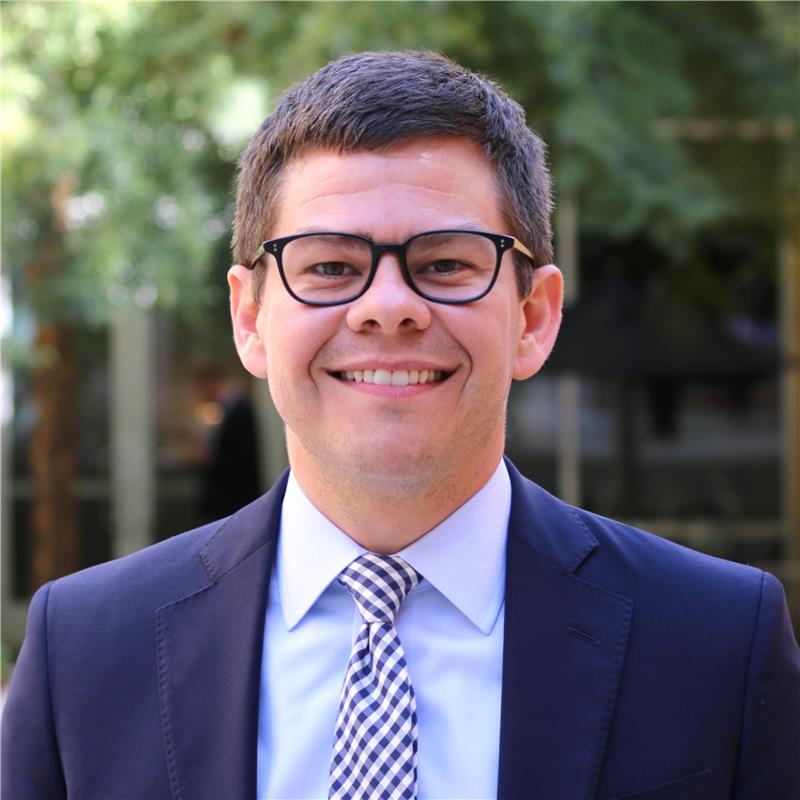
New dad Will, thought about how he wants his son, Teddy, to grow up with a connection to nature and set a goal to learn how to identify local flora and fauna.
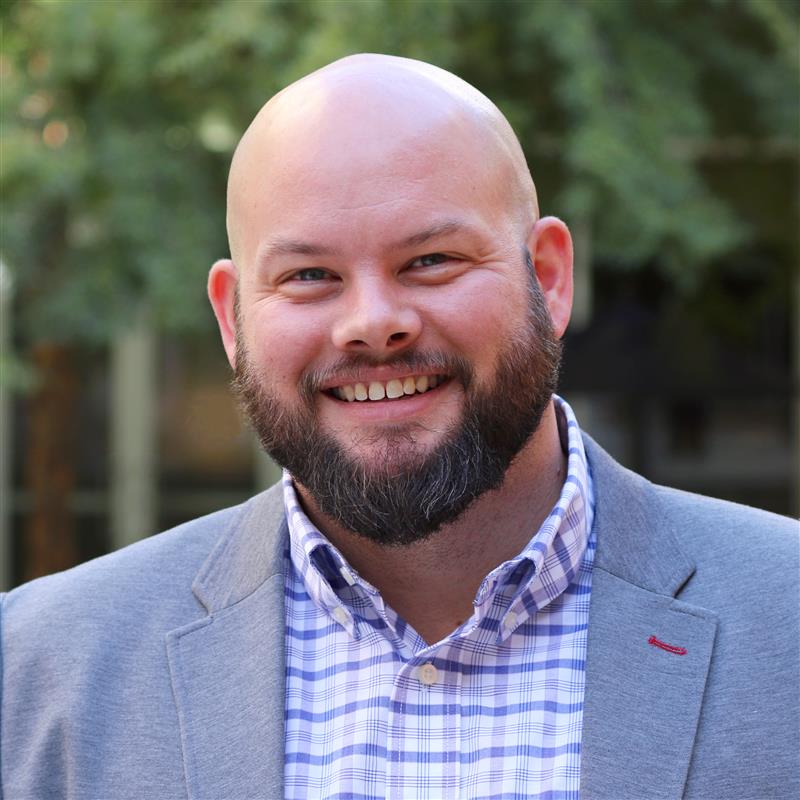
Wesley talked about shopping locally to reduce greenhouse gas emissions in the production and transport of products while also supporting workers in your city or region.
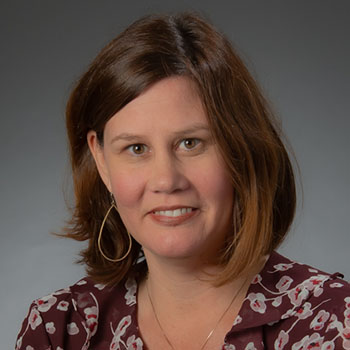
While enjoying the scavenger hunt and getting outdoors with her son, Wyatt, Anne also collected pieces of trash that otherwise may have harmed local wildlife.
Many of us already practice eco-friendly habits, like eating plant-based meals, taking short showers, gardening, or buying sustainable products, but are finding new ways to adapt these activities to a new normal and challenge ourselves to do more. While we couldn’t spend the day together this year, we are grateful for our community which continues to support us through these difficult times and remains united in making the world a better place for everyone on it.
Wacky Wednesday
Mandy Mahoney
Where are we? What is going on? Why is there a piece of bacon hitting a baseball?
Today my son’s kindergarten class is hosting a virtual Wacky Wednesday. He decided to wear his Macon Bacon t-shirt because a piece of bacon playing baseball is pretty wacky. The Macon Bacon is part of the Coastal Plain League, an amateur baseball league comprised of college baseball players from schools like Georgia College and Eastern Kentucky. Last August, in the slow heat of the Georgia Piedmont, our family went to a match-up between the Macon Bacon and the Savannah Bananas. There was no breeze blowing through historic Luther Williams Field. The ball field was built in 1929, and has seemingly stood still in time for the last 90 years.
The game was a highlight of our summer. On a Friday afternoon, we drove down to my hometown and met my mom. We dined on Macon’s famous Nu-Way Wieners. At the ball field, my son excitedly sought out Kevin, the team’s half person, half bacon mascot, to take a picture with him. The baseball wasn’t very good, and I don’t remember who won, but that wasn’t the point.
That time seems so far away on this Wacky Wednesday. Now every day feels like we’re living Wacky Wednesday. Last week, Anne and I heard from one of our partners, “If you would have told me a month ago that I would be talking about where to get toilet paper on a work call I would have thought you were crazy.” We are all pretty shocked that our lives have shifted so dramatically, from supply scarcity, to virtual everything, distance learning, grocery delivery, job losses, and grief.
It all feels pretty wacky.
What I loved so much about the Macon Bacon game was being in community with people I loved and people I didn’t even know, the connection to my hometown, and introducing my son to a part of my history. We all still want those things today. Our brains are struggling to make sense of the rapid changes happening all around us. We struggle through the bewilderment of how to maintain and find that authentic, deep connection to family, friends, and colleagues during the pandemic.
The team at SEEA and I have consciously slowed down our work and our pace of activity. We believe now is a time to reach out to our partners and observe what the real needs are in this new era before we move into action. Yesterday, Cyrus and I were on a video call with another close partner and he started out by saying, “Well I am not sure why we are talking today.” My response was that we care about him and just wanted to see how he was doing. I could instantly see a sense of relief come over him. He appreciated that we simply wanted to know how he and his family are doing. We got around to talking about work later in the call. When we approach opportunities for connection with vulnerability and curiosity, we experience deeper, and more meaningful relationships.
Our conversations with partners and stakeholders over the last 10 days have given us some glimpses of the needs and strategies. We find a consistent concern about the burden of energy bills for the waves of workers laid off from the restaurant, retail, and many other impacted industries. We also hear a theme that we both want to respect the real suffering of this time while also not missing the opportunity to build back better.
We want to connect with you. We want to hear your thoughts, reflections, concerns, and ideas. We are better and stronger together.


